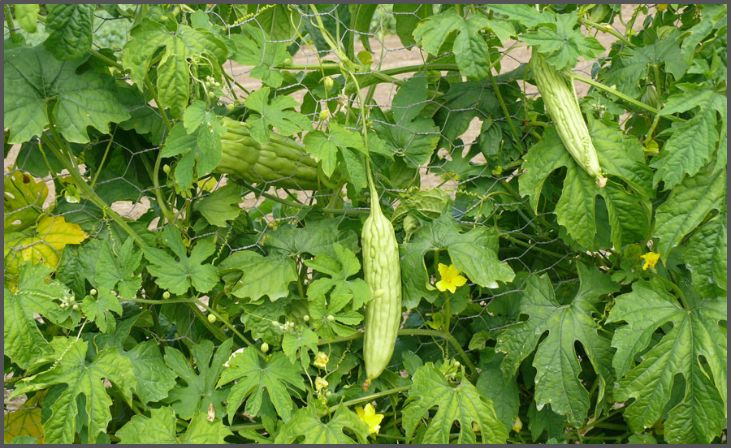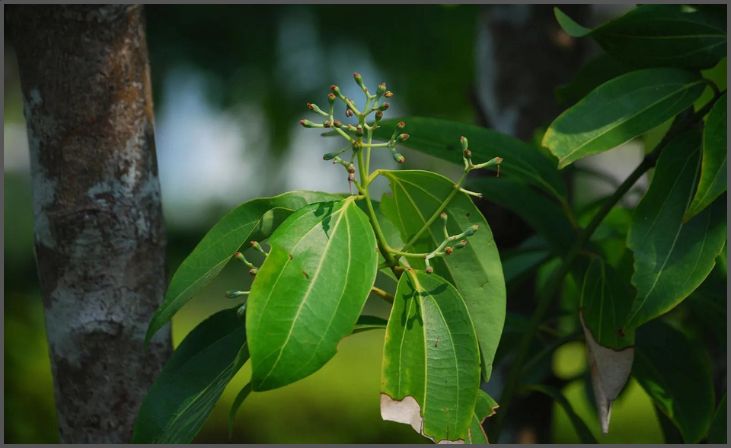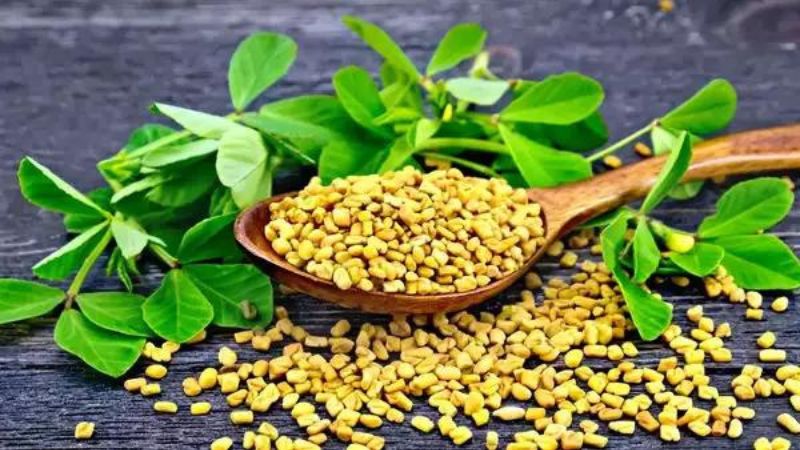Maintaining healthy blood sugar levels is crucial for overall well-being, particularly for individuals with diabetes or those at risk of developing it. While medications play a significant role in managing blood sugar, incorporating natural remedies like leaves into your diet can offer additional support. Here are seven leaves renowned for their potential to help regulate blood sugar levels effectively.
1. Bitter Melon Leaves

Bitter melon, also known as bitter gourd, is a staple in traditional medicine for its remarkable ability to lower blood sugar levels. The leaves of the bitter melon plant contain compounds such as charantin and polypeptide-p, which mimic insulin and help regulate glucose metabolism. Consuming bitter melon leaves as a part of your diet or in the form of tea can aid in managing blood sugar spikes after meals and improving insulin sensitivity over time.
2. Fenugreek Leaves
Fenugreek leaves, commonly used in culinary dishes, possess potent anti-diabetic properties. They contain soluble fiber, which slows down the absorption of carbohydrates and sugars in the bloodstream, thereby preventing sudden spikes in blood glucose levels. Additionally, fenugreek leaves are rich in a compound called trigonelline, which has been shown to enhance insulin secretion and improve glucose tolerance. Including fenugreek leaves in salads, soups, or as a garnish can be a flavorful way to support blood sugar regulation.
3. Curry Leaves
Curry leaves, a staple ingredient in Indian cuisine, offer more than just flavor—they also pack a punch in terms of health benefits, particularly for managing blood sugar. These leaves contain compounds like carbazole alkaloids, which possess hypoglycemic properties, meaning they help lower blood sugar levels. Moreover, curry leaves are rich in antioxidants that protect pancreatic cells from damage and enhance insulin production. Incorporating curry leaves into your cooking or consuming them raw can aid in maintaining stable blood sugar levels.
4. Guava Leaves
Guava leaves have garnered attention for their potential to regulate blood sugar levels and improve insulin sensitivity. These leaves contain flavonoids and polyphenols that exert anti-hyperglycemic effects by inhibiting the absorption of sugar in the intestine and enhancing glucose uptake by cells. Drinking guava leaf tea regularly may help lower fasting blood sugar levels and reduce the risk of complications associated with diabetes. Additionally, the antioxidants present in guava leaves offer protection against oxidative stress, a common concern in individuals with diabetes.
5. Olive Leaves
Olive leaves have been recognized for their medicinal properties for centuries, including their ability to support blood sugar control. These leaves contain compounds like oleuropein, which have demonstrated anti-diabetic effects by improving insulin sensitivity and reducing insulin resistance. Additionally, olive leaves possess anti-inflammatory properties, which can help alleviate inflammation often associated with diabetes. Consuming olive leaf extract as a supplement or steeping olive leaves to make tea can be beneficial for individuals looking to manage their blood sugar levels naturally.
6. Mulberry Leaves
Mulberry leaves have been used in traditional Chinese medicine for their blood sugar-lowering effects. They contain compounds like 1-deoxynojirimycin (DNJ), which inhibit the activity of alpha-glucosidase, an enzyme involved in carbohydrate digestion. By slowing down the breakdown of carbohydrates into glucose, mulberry leaves help prevent sudden spikes in blood sugar levels after meals. Moreover, mulberry leaves contain antioxidants that protect pancreatic beta cells and promote insulin secretion. Drinking mulberry leaf tea or adding dried mulberry leaves to your diet can contribute to better blood sugar control.
7. Cinnamon Leaves

Cinnamon, often used as a spice, also offers benefits for blood sugar regulation, and its leaves are no exception. Cinnamon leaves contain bioactive compounds like cinnamaldehyde and cinnamic acid, which have been shown to improve insulin sensitivity and lower fasting blood sugar levels. Additionally, cinnamon leaves possess antioxidant properties that help combat oxidative stress and inflammation associated with diabetes. Brewing cinnamon leaf tea or using cinnamon leaves as a flavoring agent in dishes can be a delicious way to incorporate this beneficial leaf into your diet.
Incorporating these seven leaves into your diet can complement existing blood sugar management strategies and promote overall health and well-being. However, it’s essential to consult with a healthcare professional before making any significant changes to your diet, especially if you have diabetes or are taking medications to manage blood sugar levels. With the right lifestyle choices and natural remedies, maintaining optimal blood sugar levels is within reach.


